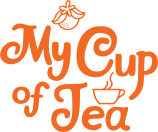
Leaning In
Leaning In
Every woman currently employed at My Cup of Tea is a Black woman who is also a mother. Many are grandmothers. In many ways, they are like all mothers and grandmothers when it comes to concern for their children.
Mothers and grandmothers worry about whether their children have enough to eat. Do they have clean clothes to wear? Do they have good friends and are those friends positive influences? Are they getting a good education? How are they responding to the temptations to experiment with drugs, alcohol, or to engage in other risky behaviors? And there are so many others.
That’s where the paths diverge.
Black mothers and grandmothers have a unique and unenviable burden to bear. Each time one of their children leaves home, they must worry about whether that child will die a violent death. The fear is palpable, and it’s rational.
The Centers for Disease Control names homicide as the leading cause of death among young Black boys and men ages 1 to 44. A more recent study from the University of Michigan is more specific and ranks use of force by law enforcement as the sixth leading cause of death for young, Black men. What is clear is that a young, Black man is 2.5 to 3 times more likely to be murdered than young men of other racial groups.
In the wake of the Tyre Nichols killing, the My Cup of Tea women grieve with RowVaughn Wells, Tyre’s mother. But there is no shock or hint of surprise. The violent death of young, Black men, and with increasing frequency, young, Black women, is all too common.
“Everyone’s already decided that we [African Americans] weren’t brought up right, can’t read and write, don’t want an education or a job, and just want to be out here doing the wrong things,” one My Cup of Tea woman recently said. “It’s not true. Some of us…a lot of us are trying to better ourselves.”
It’s because of this perception that the same woman says she had “the talk” with her children. “The talk” she refers to is one mostly exclusive to the parents and guardians of Black boys and girls. It is about racial bias from authority figures like law enforcement and how to protect themselves when approached. Children are given instructions like: don’t make any sudden moves; always keep your hands where they can be seen; never argue or disagree, even if you are right; don’t wear your hood; and keep your hands out of your pockets. And “the talk” is not a one-time occurrence. Most African American children are regularly reminded about this special set of rules exclusive to young people with black and brown skin.
My Cup of Tea began in 2015. It was less than a year after the killing of Michael Brown in Ferguson, Missouri. That means the African American women of Orange Mound who work here and the Caucasian women of East Memphis and Shelby County who volunteer here have served side-by-side through the tragedies of George Floyd, Tamir Rice, Philando Castille, Breonna Taylor, and so many others over the last eight years.
In the days immediately following one of these high-profile killings, sometimes there have been frank conversations about race and prejudice. At other times, a simple squeeze of a hand or pat on the shoulder acknowledges that the situation is harder than one can express. What we have come to realize is that we have an answer for many of the problems My Cup of Tea women face like an unpaid bill, a case of the flu, a ride to and from work, or an empty refrigerator. But this, the reality that we are losing so many black and brown men and boys to violence, some at the hands of those sworn to protect, is something for which we have no answers.
Our volunteer sisters have been shocked, unaware of the reality of their black and brown sisters. They had never heard the term "driving while Black" and found it hard to believe, but are committed to praying for justice and reform.
All of us empathize as best we can but lack the heart-rending experience to truly understand. So, together we lean into what we know and who we know: our belief that God understands the things we don’t (Psalm 147:5); He hears and answers prayer (John 15:7); God heals the brokenhearted (Psalm 147:3); and we are all made in His image (Genesis 1:27).


